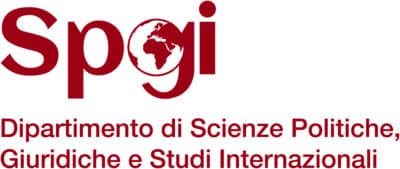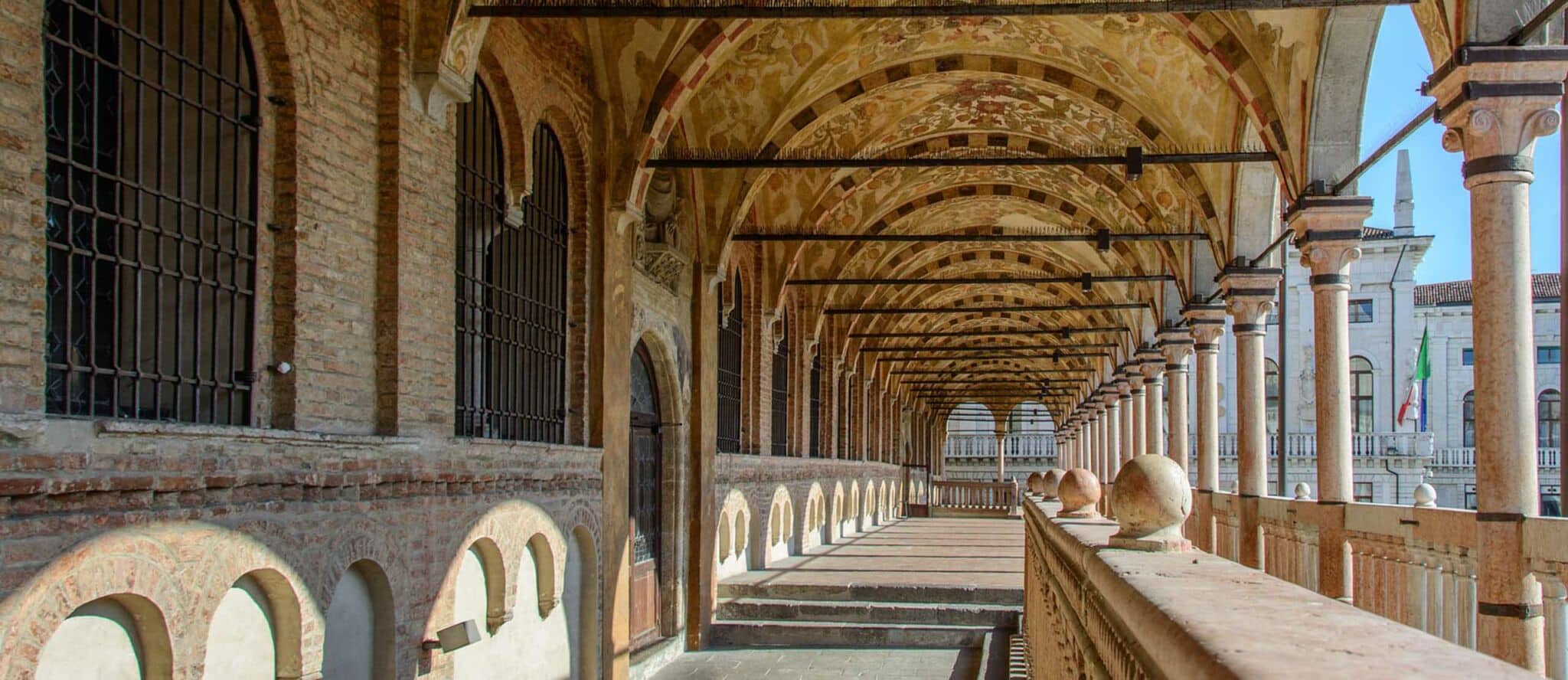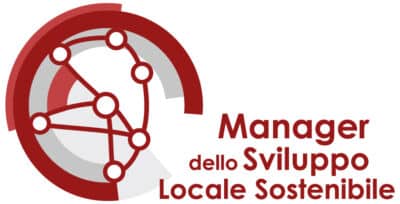

The Second-level short specialisation degree in Sustainable Local Development Management prepares professional figures, such as participatory and collaborative process facilitators, mobilizers and managers of local sustainable development networks to work in the public and private organizations involved in the production of collective goods for territorial development.
During the course, attendees will develop network management and project design skills, in the areas of developmental sustainability, local social responsibility and governance networks between public, private and tertiary stakeholders.
The Master provides competencies in collaborative project design and project management for integrated development policies, and the ability to promote forms of resilience and social innovation, from circular economy to sustainable tourism, urban regeneration and Territorial and Subsidiary Welfare.
Second-level short specialisation degree in Sustainable Local Development Management on YouTube
The course units of the Second-level short specialisation degree in Sustainable Local Development Management develop managerial and strategic skills for an impactful action, teach an innovative and distinctive approach to understand and create, and provide insights on interconnected policy areas to promote experimentation and verification.
During the lessons, cooperative teamwork and co-design and team play attitude are valorised, thanks to a dedicated team-building module.
The course will include a customized 225-hour stage (9 CFU), or, alternatively, a project work with a specific training project, agreed with the Short specialisation degree’s Director, and related to the workshop research topic and the final dissertation.
Furthermore, it will include lecturers from inside and outside the University of Padua and testimonies by strategic territorial development stakeholders.
During the Second-level short specialisation degree in Sustainable Local Development Management, students will improve their multidisciplinary applicative competencies, in order to work proactively within complex sustainable territorial development and social innovation processes.
The figures of participatory and collaborative process facilitators, mobilizers and managers of local sustainable development networks can operate both in public and private organizations involved in the production of collective goods for territorial development. Regions, Provinces, Municipalities, Local Health Units, Social Territorial Areas, Public Utilities, Chambers of Commerce, Local Action Groups, Tourist Destination Management Organizations, Trade Associations, Trade Unions and Organisms of the Tertiary Sector, Cluster Managers for Business Networks.
The Second-level short specialisation degree in Sustainable Local Development Management will provide training on the following topics, through dedicated n. 11 modules:
Ecosystemic approch to local sustainable development policies and Social Responsibility’s Territory
24 hours/4 CFU/January 2026
coordination by Patrizia Messina
Collaborative project design
30 hours/5 CFU/January 2026
coordination by Lorenzo Liguoro
Urban and territorial regeneration
24 hours/4 CFU/February 2026
coordination by Michelangelo Savino
Communities resilient to the hydrogeological risk
24 hours/4 CFU/February 2026
coordination by Vincenzo D’Agostino
Public and private network management
18 hours/3 CFU/March 2026
coordination by Mauro Salvato
Development network management
18 hours/3 CFU/March 2026
coordination by Luciano Gallo
Territorial welfare and social innovation
18 hours/3 CFU/April 2026
coordination by Patrizia Messina
Circular economy and ethical finance
18 hours/4 CFU/May 2026
coordination by Eleonora Di Maria
Integrated sustainable tourism policies
18 hours/3 CFU/June 2026
coordination by Stefan Marchioro
Cultural tourism and sustainable local development
12 hours/2 CFU/June 2026
coordination by Elena Bonel
M.A.S.TER School
10 hours/1 CFU/September 2026
coordination by Patrizia Messina
Furthermore, only for the entire Second-level short specialisation degree:
D&F Workshop
20-hour workshop, 16-online hours /4 CFU
coordination by SHERPA spin off of the University of Padua
Local context analysis tools and case studies
20-hour workshop, 8 hours online /3 CFU
coordinated by Lorenza Perini
Team building and work team organization
16-hour workshop, 8 hours online /3 CFU
coordinated by Andrea Marella
D&F Laboratory constitute the core of the Second-level short specialisation degree and has the objective of promoting a culture of networking and co-planning, through active teaching that follows the trend of interdisciplinary action research, favoring project design and project management methodologies.
The exploratory research, carried out through group work, is aimed at identifying, evaluating and proposing public policies and emerging good practices for sustainable local development, according to the ecological approach of analysis of integrated development policies.
The research groups can self-manage and are evaluated in relation to:
1) the degree of internal cohesion;
2) the ability to contribute to the Laboratory with one’s own work;
3) the ability to cooperate and coordinate with other working groups, to arrive at a unified work of the D&F Laboratory.
It is planned to encourage interaction between the working groups both through team building meetings and through an appropriately guided virtual learning environment, which will accompany the students for the entire duration of the Laboratory, also through the use of the MOSAIC-software “Design Your Decision”, a collaborative design tool aimed at the structuring and digitalisation of public and private collaborative processes, in collaboration with SHERPA srl – spin off of the University of Padua.
The D&F 2026 Laboratory will be dedicated to the theme “Living in Italy”.
The results of this research will be presented in September, on the occasion of the XXII edition of the M.A.S.TER School.
The M.A.S.TER. School (School of Mediators and Animators for the Development of the Territory), at the 22nd edition in 2026, is an annual continuous training event that has been held since 2004 with the aim of creating an opportunity for socialization and learning on the issues of community and territory development, putting in relation to local operators and expert scholars on the subject.
The M.A.S.TER. School takes place in September, in Padua and its province, at the conclusion of the MSLS Master training course, and is open to all Alumni of previous editions of the Short specialisation degree MSLS. The event includes thematic sessions with interventions by experts and the presentation of the results of the Dire&Fare Laboratory for Local Development created by the students of the Short specialisation degree MSLS.
It was created with the collaboration of SHERPA srl, a spin-off of the University of Padua and the S.M.A.R.T. Association (Scholars, Managers and Animators of Networks and Territories).
The S.M.A.R.T. started in September 2018 on the initiative of former Short specialisation degree MSLS students, researchers and teachers. S.M.A.R.T. it intervenes in the promotion of exchange and learning opportunities, in the organization of animation initiatives aimed at students and Alumni of the Short specialisation degree MSLS and in the realization of interventions aimed at deepening the prospects of networking. S.M.A.R.T promotes the Studio Damiano Caravello Prize with the aim of supporting the training of new young network managers.
Single course
Information
FAQ
Lessons will be held on Fridays from 09.00 to 13.00 and from 14.00 to 16.00 and on Saturdays from 09.00 to 13.00.
Teaching takes place in blended mode, both in person and remotely, with some moments exclusively online and others exclusively in person.
They will be exclusively in presence:
a) the inaugural lesson in december 2025, with the presentation of the program and the course calendar and the meeting of the class group;
b) an intermediate full immersion event in may 2026, on the occasion of the Sustainable Development Festival;
c) the M.A.S.TER School at the end of the training course in september 2026, with the presentation of the Laboratory results to the public. Some lessons from the Collaborative Design Laboratory and testimonies from local actors will only be online, for a total of 40 hours.
Yes, three study prizes are planned for the 2025-26 edition, awarded by Banca Etica, Zordan Srl sb and the SMART Association – Damiano Caravello Prize.
The award criteria are defined annually by the director of the Master in agreement with the provider (income, minor age, quality of the final paper and/or of the internship or project work).
It is not necessary to apply for admission to the Study Awards.
The MSLS Second-level short specialisation degree includes 9 credits for Internship or Project Work, which are alternative.
Those who request it will be offered the opportunity to do a personalized internship in public and private bodies in network with the MSLS Second-level short specialisation degree, which have hosted interns for years. The objective of the internship is to offer a practical learning opportunity consistent with the contents of the Second-level short specialisation degree. The internship has a duration of 225 hours (9 CFU), to be carried out on days, times and methods agreed with the host institution within a maximum of six months, to be concluded preferably by July, and in any case no later than September. There is an academic tutor, teacher of the Second-level short specialisation degree, and a company tutor who has often attended the Second-level short specialisation degree in the past.
As an alternative to the internship, it is possible to carry out a Project Work, the objective of which is the theoretical in-depth study of a Second-level short specialisation degree’s theme in the form of a feasibility study, context analysis and review of the relevant sources and literature.
Common elements of internships and project work are the identification of an academic tutor and the drafting of a short final report. Internships or project work can constitute the topic of the final thesis.
The thesis request and title must be submitted by June.
Yes. There are intermediate evaluations and a final evaluation. The intermediate evaluation takes place at the end of each single course, via an online multiple choice/open test.
The final evaluation includes a final paper or Second-level short specialisation degree’s thesis, a supervisor and a final discussion in front of a commission.
The final evaluation is expressed on the scale: excellent, good, fair, insufficient and takes into account the following elements: evaluations of the individual courses, of internships/project work, of participation in the laboratory group work and in class debate, of the thesis the final.
Yes, it’s possible. Both those who possess the qualification required for access to the Second-level short specialisation degree’s and those who do not possess it can enroll in the individual courses by paying the required registration fee. All participants in single courses will be issued, upon request to the Post Graduate Service, a certificate of attendance. The CFU fees will only be recognized to those who have at least a three-year degree. It is possible to attend single courses of the same Second-level short specialisation degree in the same academic year up to a maximum of 20 ECTS.
The activation of the individual courses depends on the activation of the MSLS Second-level short specialisation degree.


